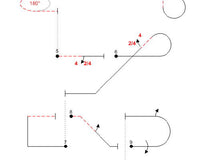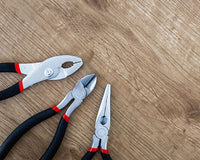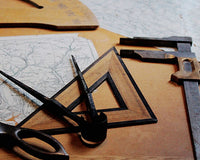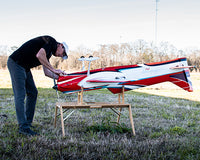This article is written by CK Aero Founder Bryan Hebert
Do you call maneuvers for a flying buddy at a contest, or at the home field ? Sure we all do. Do you know what you’re responsible for as a caller or as a pilot?
Well, I hope I can help in defining your job a little better. Depending on the class you’re calling for, the job changes. The higher up you go in class, the less you should be responsible for, that is…until you get to F3A unknowns calling. We all have called for multiple guys at a contest. Some want rudder input and some want blow by blow inputs. Really, your job is only one thing; to call the maneuvers as a reminder to what`s coming next with the right timing. The pilot is responsible to know the pattern and be able to fly it by himself, without a caller. You, the caller, are just there for back up due to nerves and the pressure of being judged that we all experience.
In the Sportsman and Intermediate classes, there could be some help given to the pilots during the flight due to lack of experience or flying time. If you happen to call for this class, ask beforehand what they expect of you. Some may want rudder inputs or centering called as well as the maneuvers. Try not to overwhelm the rookie competitor with too much information and only give him what he asked for before the flight. I recommend to all pilots that you should use someone you can work with on a regular basis to establish a good communication relationship.
As a flier, it`s your responsibility to know the sequence and be able to fly it without a caller. This can only happen if you memorize the sequence. The first time I called for Jason Shulman in a Team Trials/NATS way back when, we worked on the unknowns and F sequence the night before the finals. I was beat, tired, and sunburned. It was about 1 AM when we finished and all I wanted to do was go to bed. To my surprise, the next morning when I met Jason at the Nats site , he asked me to watch him as he flew the stick plane through the unknown schedules in case he flew the wrong maneuver and, to my amazement, he nailed them. He had memorized them that night after I went to bed. I realized this is part of a top flyer’s talent and is part of what sets him apart. Brett does the same thing and I`m sure Andrew Jesky and a few others have this ability as well. Think about it ,if you can memorize the sequence, it`s no longer an unknown and now your not totally dependent on the caller not to make a mistake.
It`s a team effort but the pilot is inevitably responsible for moving the sticks in the right direction and preparing for the flight so he should take that responsibility on his shoulders and inform the caller what`s required from him. This is the biggest thing I think the average pilot at local events can learn. Memorize the pattern! If needed, you could fly the pattern if your caller calls the wrong maneuver by mistake. I can`t tell you how many times I hear ” I zeroed a maneuver because my caller called the wrong maneuver”! Well, I hate to break it to you but unless your flying an unknown, you’re to blame for that mistake, and for not knowing your sequence well enough.
As you know, I call for Brett at Team Trials/NATS, on the World level, and local competitions. This job is tough for me. Getting the cadence right (calling the next maneuver on time/before time) is something we practice and work hard to get right. The demands on being Brett`s caller are tougher for me than it may seem. #1 I designed the plane he is flying and I am always interested in watching how the airplane is performing, #2 I really want to watch the flight but I only get to see snippets #3 I want to watch the execution of the complicated maneuvers to give feedback after the flight. It`s tough not to lose my place. I have to concentrate very hard to do my job right. My job is really to just call the maneuvers. It`s easy right? We do not communicate during the Prelim flights unless Brett asks for a specific input to remind him of a positioning input or roll direction should he opt to use an infrequent option on a turnaround in heavy winds.
In F3A, you cannot really recover from simple mistakes so we plan the flights. The calling is choreographed, practiced, and constantly improved as not to break Brett`s concentration. If he has to ask for anything during the flight, I failed. On a finals sequence, we work on more precise wording before hand. We discuss the possibility of wind direction changes as to know where he may change his preferred turn-around option. Brett writes out each pattern exactly as he wants it called and we practice flying with a stick plane; the timing has to be perfect. My calling must be precise, clear, and on point.
Calling for unknowns, Brett will also rename some maneuvers as he rewrites them to shorten the calling time because there’s not enough time to cram all the maneuver descriptions in. We will discuss the abbreviated wording, make sure we both agree and understand what the meaning is, and then we practice calling it at the right time with the stick plane flights in the room that night. We will typically find a quiet spot before the round starts in the morning and work on the calling/stick flying as many times as Brett deems it necessary to get comfortable with how we perform it. He generally tries to practice fly it with and without me calling it.
More and more, this has become a team sport. I recommend, as a pilot, you find a caller and work together with someone in the same class your flying. Do not expect more from the caller than he is really responsible for and learn how to communicate with him. As a caller, ask the pilot what he expects from you and try to give him only what he asks for.
Every aspect of this flying discipline requires practice and precision, from judging or flying, to calling. Take it all serious and try to learn as much as you can in each area of the sport. Apply what you learn as best you can and strive to improve in each area. Ask the guys who are successful in their class for help and do your best to improve each time you compete. You will enjoy the pursuit more and it will pay dividends in the end.











